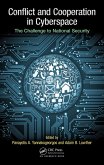Computer supported cooperative work (CSCW) systems will undoubtedly play an important role in the application of information systems in the 1990s and beyond. The term "cooperative" is often taken for granted and it is assumed that CSCW users are willing and able to cooperate without any difficulty. This assumption ignores the possibility of conflict and, as a result, the expression, management and resolution of conflict are not supported. CSCW: Cooperation or Conflict? arose from a one-day meeting on computer supported cooperative work which examined the role of conflict in collaborative work. The aim of the meeting was to examine what people actually do when they say they are cooperating, and to assess how this affects the design of systems. The chapters of this book are fuller accounts of the work presented during the meeting. The first chapter presents a survey of studies of conflict in social psychology and related fields, providing both a summary of the main findings and a set of pointers into the literature. The subsequent chapters each present a different view of conflict, focussing particularly on the social and organizational settings, and the factors which lead to conflict. The earlier chapters provide conceptual frameworks for the study of various types of conflict, while the later chapters concentrate on the implications for CSCW. The book is the first to examine conflict from a CSCW perspective. It offers a unique snapshot of current research work in this exciting field, and establishes the importance of the issue. For the designer of CSCW systems, it offers insights into the role of conflict, and an analysis of some of the assumptions on which existing CSCW sytems have been based. For the student and researcher, it provides both an introduction to the area, and a set of in-depth studies suitable to inform future research.
Dieser Download kann aus rechtlichen Gründen nur mit Rechnungsadresse in A, B, BG, CY, CZ, D, DK, EW, E, FIN, F, GR, HR, H, IRL, I, LT, L, LR, M, NL, PL, P, R, S, SLO, SK ausgeliefert werden.









